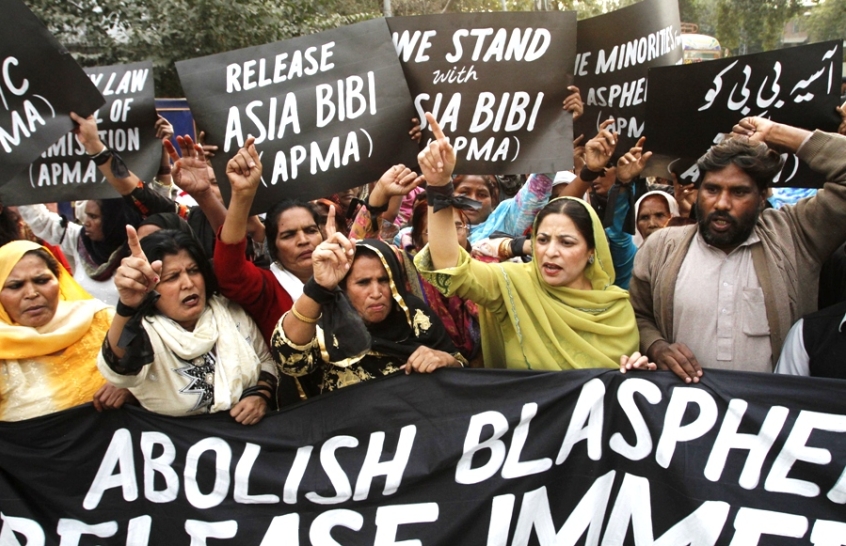
A Christian advocacy group has welcomed the Pakistani parliament's plans to reform its controversial blasphemy laws.
The planned reform comes after a university student was killed by a mob on April 14 after being accused of blasphemy, according to the Centre for Legal Aid, Assistance and Settlement (CLAAS), a group that supports persecuted Christians in Pakistan.
According to Pakistani laws, insulting Islam can incur the death penalty.
The murdered student was a member of Abdul Wali Khan University in north-western Pakistan and was beaten to death for allegedly promoting 'blasphemous' content on social media, including his views on socialism and the mystic aspect of Islam known as Sufism.
Another student was injured in the mob attack, after which university officials closed the campus. As many as 45 people have reportedly been detained in connection with the lynching.
A resolution by Pakistan's National Assembly condemned the killing and said that legal safeguards needed to be implemented to avoid abuse of the country's blasphemy laws.
CLAAS director Nasir Saeed welcomed the news. He said: 'It is great news as in the past whoever tried to speak about changes in the blasphemy law was shut up and even threatened with death.
'Those who raised their voices, like Punjab governor Salmaan Taseer and minority minister Shahbaz Bhatti, were killed in broad daylight, and their killers hailed as heroes.
'I wish the Pakistani parliament had taken this step and realised the sensitivity of the issue earlier, saving many innocent people who were killed for a crime they never committed. Their lives could have been saved, but it is still not too late.'
Advocacy groups say that the majority-Muslim country's blasphemy laws are used to target religious minorities, including Christians.
In 2011, Pakistan's minister for minorities Shahbaz Bhatti was murdered for his opposition to the country's blasphemy laws. Bhatti, a devout Christian, was shot by three masked men as he left his mother's home in Islamabad. He had defended among others Asia Bibi, a Christian woman jailed in 2009 for blasphemy who has been on death row for six years. Her defenders are adamant she was wrongly blamed in an inter-communal argument.
Just months before, Salman Taseer, governor of the Punjab region was also murdered for his opposition to the blasphemy laws. His murderer was his own bodyguard Mumtaz Qadri, who was later hanged. Thousands attended Qadri's funeral, declaring him a martyr for Islam and demanding tougher blasphemy laws.
In January this year, a Christian man was arrested over claims of blasphemy.













